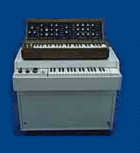





































|
Igor Garsnek - Loomade Farm

Comments:
You know, I really don't know what to make of this album. Loomade Farm is simply an oddity in the world of progressive rock. Keyboardist Igor Garsnek released this George Orwell-inspired concept album in 1986. Historically speaking, Loomade Farm is known for its criticism of the Soviet regime(which at the time was almost unheard of), but Igor was also quite thrilled with the digital technology of that era. So, he recorded the whole album using 80s digital keyboards and drum machines. And, that decision, about 15 years ago, dated the music to an extreme. The music, while influenced by prog, will instantly remind listeners of the music on "Miami Vice". Slick keyboard sounds, and mechanical drum machine beats are part of every track. Making things even weirder, the music also sounds influenced by some of the music Genesis was putting out in the 80s. Fortunately, the vocals save the album from the digital slickness. Along with solo male voice, the album features a rather unique mid-sized choir that appears every once in a while. Overall, I still don't know what to make of this album. I've tried to listen to it more than a few times, but it still hasn't made an impression on me. For the musically curious, I recommend Loomade Farm mostly to 80s prog fans.
Year: 1986
Compositions: 7/10
Vocals(in Estonian): 8/10
Recording Quality: 9/10
Email:
boheme@iol.cz
Webpage:
Boheme Music
Synopsis - Synopsis
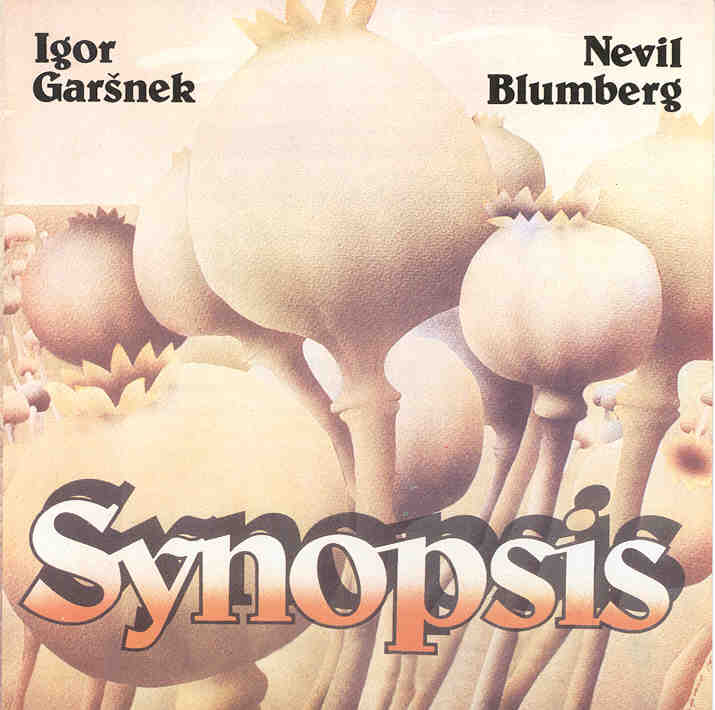
Comments:
Synopsis was a mostly two-man project that began and ended with the release of the album Synopsis for the Melodiya label in 1986. The music here will mostly appeal to fans of 80s progressive rock, and ambient electronic music. The 8 tracks tend to alternate between upbeat 80s Yes and Jethro Tull-influenced progressive rock, and darker, mellower, ambient electronica. Overall, I tend to think that this music was geared to an older crowd. The melodies tend to have that "safe" quality common in modern jazz, and new age music. This CD is worth checking out if you're looking for something relaxing.
Year: 1986
Compositions: 8/10
Vocals(none): N/A
Recording Quality: 8/10
Email:
boheme@iol.cz
Webpage:
Boheme Music
Sven Grunberg - Breath
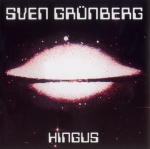
Comments:
Sven Grunberg is well-known for his 1976 progressive rock album Mess. But, he would soon release two classic albums of ambient electronic exploration. Breath features three long tracks of Klaus Schulze and Jean-Michelle Jarre influenced space explorations. Sven tends to use Moog-like synths, and what sounds like a small church organ, to slowly build tension. Once in a while, I hear percussion instruments, but the music is rarely driven by percussion. Given that these tracks were composed between 1978-1980, the sound is "analog". Surprisingly, though, the music sounds quite new. It could have easily been composed today without sounding dated. Overall, this sort of music will appeal to fans of space-rock, Klaus Schulze, and electronica. Personally, I can only take small doses of ambient electronic music, but given how popular the genre is right now, this album is certainly one of the classics from the early days of electronica.
Year: 1978-80
Compositions: 8/10
Vocals(none): N/A
Recording Quality: 9/10
Email:
boheme@iol.cz
Webpage:
Boheme Music
Sven Grunberg - Breath
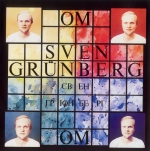
Comments:
Om is easily my favorite of the two Grunberg albums. Sven brings in influences from Buddhism and Asian music into his Klaus Schulze-inspired electronic music. The album starts off with the sound of a woodblock lost in a thick fog of reverb. The Zen-like tap slowly picks up tempo as ambient instruments appear out of nowhere. Listeners who are familiar with Breath will instantly notice the Asian influence on Om. For example, a Koto-like instrument(or Kayagum) is played on a couple of tracks, rhythms are similar to those played by Buddhist monks, and the synths are played in various Asian scales(mostly Japanese and Chinese). Many sections are also influenced by grandiose Chinese classical music. Again, given that these compositions were recorded between 1981-1987, it's hard to find anything "digital". The sound is analog, and earthly, in a spacy sort of way. Overall, due to the use of Asian scales, motifs, and Buddhist rhythms Om is more interesting musically. The album is still very much in the electronic genre, but it's a more complex album that will appeal to those who aren't really into ambient synth-based music.
Year: 1981-87
Compositions: 9/10
Vocals(none): N/A
Recording Quality: 9/10
Email:
boheme@iol.cz
Webpage:
Boheme Music
Kaseke - Põletus/Sõnum
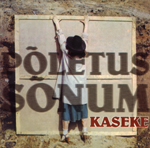
Comments:
Kaseke is considered Estonia's finest progressive-fusion band.
They started playing around 1980, and released their only full-length
album in 1983(which quickly became a collector's item). Their style
of fusion is clean, and influenced mostly by the late-seventies American-fusion
scene. In fact, many tracks here have a radio-friendly sound.
Yet the music has a subtle complexity to it that will appeal to prog fans more so than
the casual jazz listener. The thing that struck me, while listening to Kaseke, was that the band sounded incredibly modern.
I would have never guessed that most of the music came out in 1983. Even
the keyboards sound like that came out of the factory around 1998. And the
keyboardists(there are several that play on the album) remind me a bit of Jordan Rudess's work on the Liquid Tension Experiment albums.
The keyboard playing is not as complex, of course, but the choice of notes are similar to Jordan's.
The listener will also notice the nice dual-guitar work by Ain Varts, and
Riho Sibul who are known in Europe for their skills. Overall, this CD will please most progressive-fusion/jazz fans. Don't expect Iceberg #2, but the music here is of high quality.
Year: 1983
Compositions: 8/10
Vocals(none): N/A
Recording Quality: 9/10
Email:
boheme@iol.cz
Webpage:
Boheme Music
|
